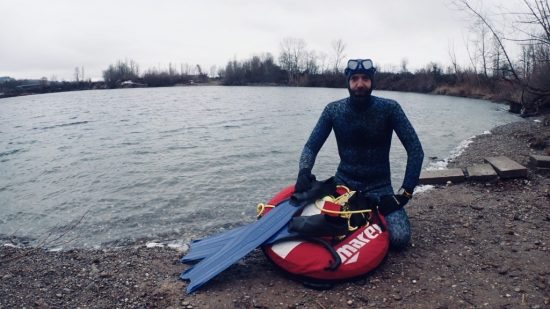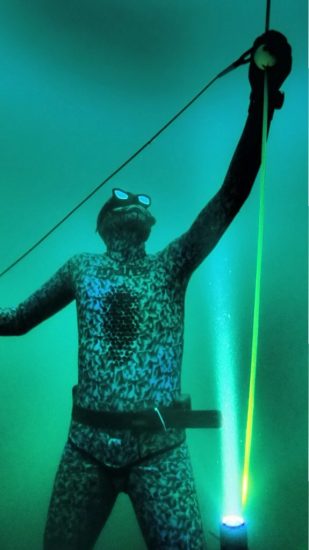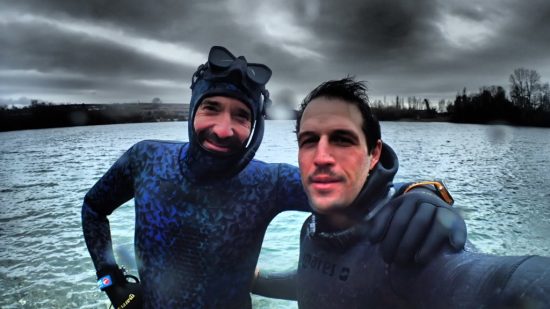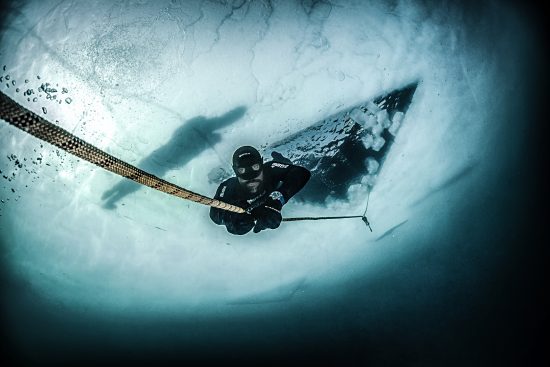





Due to covid, the opportunities to travel have been limited, and there is no hope of this changing much in the near future. So, this is why I want to share my passion for cold water diving with you.
Why should anybody leave their warm, cosy house and jump in the nearest lake or river when it seems impossible to get up from the sofa? There are some things that need to be considered…
First of all, it is healthy. There are some Navy guys who say “What doesn´t kill you makes you stronger”, but I am not referring to a kind of ‘salutogenesis’ (the doctrine of health maintenance). Sports, in general, keep our cardiovascular system busy and improve our blood pressure. Apart from this, the number of lymphocytes increases, which are responsible for fighting against pathogens, but this does not mean you have to freeze.
Sebastian Kneipp, the German ‘Water Doctor’ worked nearly 200 years ago with cold water to improve the health of this patients. Back in 1850, he already claimed that people were not used to cold temperatures anymore, because they worked indoors and their houses were heated. He already knew that the modern way of life could cause problems, however, cold water, in his opinion, should always touch a warm body, and the immersion of the body should stop when the patient freezes. To prevent yourself from hypothermia, you should only immerse in cold water for a short time, using the right equipment. As a former World Record Diver under ice, here are some ideas for diving in cold waters:
‘Cold’ isn´t ‘cold’, so usually cold water is defined by SSI as a temperature in the coldest part of your dive (mostly the deepest) of 12 degrees or below. Some people feel cold when they enter a water temperature below 20°C, and others still feel warm in 12°C water, but in water temperatures like 4-8°C you definitely need the right suit. Usually I do all my dives with the 5mm Apnea Instinct, which works fine, but now I am using Mares’ new Indigo Polygon suit, which is a combination of an 8mm Jacket and 6.5mm Pants. In comparison, I can stand the temperature of 5°C much longer. The hood also covers the head more which is great, because I always feel the cold water, especially on my forehead. You just have to make sure your mask is perfectly placed under your hood.
A big difference is also having 5mm gloves and socks. They are much warmer than the 3mm ones, and let’s not to forget, the extremities get cold quite fast due to bloodshift to the main organs like the brain and lungs. Three finger gloves would probably feel even warmer but I don’t really like them, and I feel a bit uncomfortable, especially if getting rid of a lanyard in case of an entangled lanyard in the rope.
Why should anybody go into the cold water at all, apart from the health aspect?
As already described, it is not possible to travel much at the moment, so it makes sense to get used to the conditions in your area. Of course diving in a nice reef is more colourful, but you can enjoy diving in a lake or a river as well. From a performance point of view, not having a winter break keeps you fit, and you don't have to start again in spring at a lower level, as you are still in training. It is much easier to keep on freediving, because you get used to the cold water step by step. Every week it gets a bit colder, which helps you feel familiar with it. And of course, you feel better. You might have to convince yourself to get off the sofa, but when you have finished your dive you feel relaxed and balanced, and you will sleep like a baby.
One last recommendation: In cold water, even with a great suit like the new Polygon, you are more likely to get lung squeeze, either because you are not as flexible as in warm conditions, or because you might limit your warm up dives to a minimum, because you don´t want to feel too cold. Relax and stay well within your limits!
So, enjoy the cold, and stay healthy!
 Nik
Nik 8th February 2021
8th February 2021